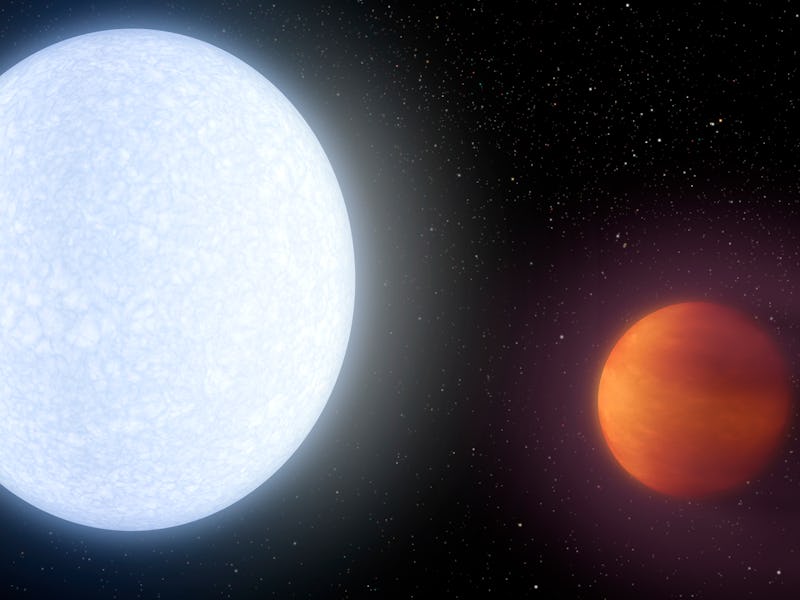This Astrophysicist Wants to Change the Definition of "Planet"
A debate of galactic proportions.

The debate over what is or isn’t a planet goes way beyond Pluto — it actually has a lot more to do with Jupiter, an astrophysicist tells Inverse.
Nailing down an exact definition of an exoplanet — or a planet that orbits a star outside of our solar system — is actually a topic of intense deliberation. But Kevin Schlaufman, an astrophysicist at Johns Hopkins University, has put forth a new definition in a paper published in the Astrophysical Journal on Monday.
“The official [International Astronomical Union] IAU definition of a ‘planet’ adopted in 2006 is meant to apply only in our Solar System,” Schlaufman, tells Inverse in an email. “There is no official IAU definition of what should be called an ‘exoplanet’ or ‘extrasolar planet’. In 2003, the IAU Working Group on Extrasolar Planets adopted a working definition.”
Artist's illustration of an exoplanet
Schlaufman found the IAU working definition to be problematic because it calculated the upper boundary of planatery mass — so how large a cosmic object can be before it isn’t considered a planet — using “imperfect models.”
He came to his definition by using an unsupervised machine learning technique — essentially having a computer classify unlabeled data — to parse through 146 solar system worth of planets. He separated the planets — objects that form like Jupiter — from brown dwarfs — or medium sized celestial objects in between a giant planet and a small star.
“My proposed definition provides a solution to all of those problems by defining a planet as an object that formed via the same physical process as Jupiter, Saturn, Uranus, and Neptune in our own Solar System,” Schlaufman explains. “Astronomers have sought to apply such a definition in the past, but they were defeated because of the difficulty in uniquely determining how billion-year-old objects like exoplanets formed. The observations and analyses I presented in my paper overcome this problem and enable the practical use of my proposed definition for this the first time.”
With this far more accurately calculated upper limit of what can be a planet, scientists can more accurately narrow their search for exoplanets and avoid mislabeling objects, like brown dwarfs, as planets.
So enough of hogging the spotlight, Pluto. The new definition for “planet” is actually all about the gas giants.
Additional reporting by Rae Paoletta